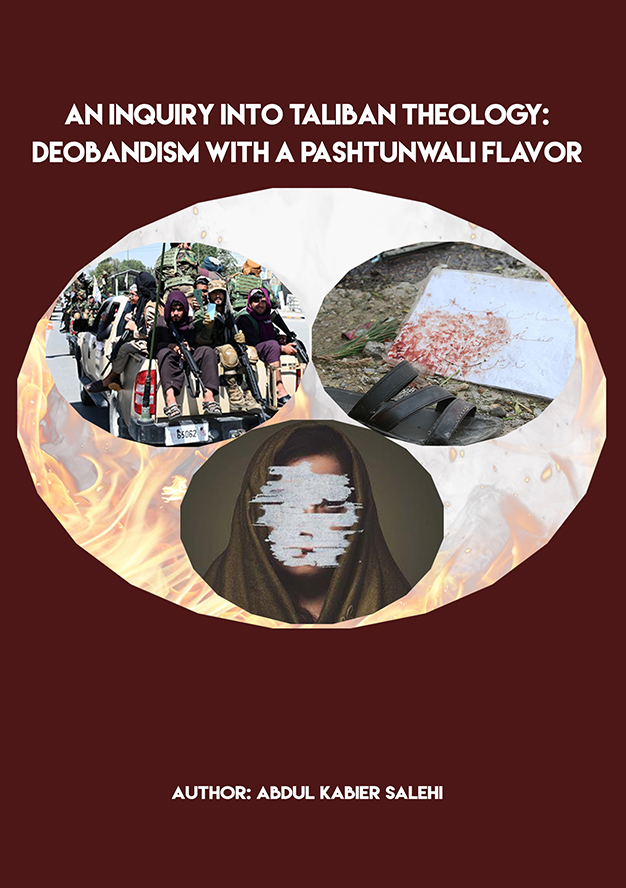An Inquiry into Taliban Theology: Deobandism with a Pashtunwali Flavor

Foreword
The resurgence of the Taliban to power in August 2021 plunged the world into profound shock and consternation. particularly the citizens of Afghanistan paid dearly for this horrifying occurrence, which left them with a bitter taste, enveloping them in widespread fear and indescribable horror. Many of them recalled the bloodshed, violence, brutality, and the Taliban's anti-civilization and anti-women practices during their previous rule, and the re-imposition of the " Sharia of the whip " terrified and horrified them once again.
Initially, some observers mistakenly believed that the Taliban had learned from their past mistakes, asserting that this time around, they would refrain from imposing stringent policies and extremist approaches on the people. However, this optimistic and unfounded belief proved short-lived. Immediately upon assuming power, the Taliban swiftly reinstated the whip of Sharia, embarking on a path marked by bloodshed, violence, gender-based oppression, strictures, and widespread harassment of the people. They imposed numerous constraints on women in the realms of education, attire, employment, political participation, and social engagement. In particular, they closed the gates of schools and universities to girls, justifying these harsh and oppressive measures by citing Sharia doctrines and theological propositions.
Hence, it is not an exaggeration to assert that many of the Taliban's harsh and unconventional behaviors find their roots in their theology, emanating from the foundational beliefs and religious doctrines they adhere to. Consequently, until we acquaint ourselves with the intellectual framework and theological perspective of the Taliban, we will be unable to provide an accurate and insightful analysis of the nature and rationale behind these behaviors.
Concerning the foregoing considerations, the present work aims to evaluate the theology of the Taliban and scrutinize and identify its major internal dimensions and foundational components. In this endeavor, we strive to dissect the discourse of Talibanism and unveil the underlying layers of their interpretation of Islam. We shed light on these layers and hope that this modest attempt finds acceptance among enthusiasts, with the collaboration of conscientious critics contributing to the rectification and refinement of its deficiencies and distortions.
In conclusion, it is incumbent upon me to express gratitude to the contributors at the Afghanistan Institute for Strategic Studies (AISS). I am confident that, without the collaboration of this institution, the groundwork for the composition, publication, and dissemination of this work would not have been possible. It is worth noting that the contents of this writing reflect the perspectives and investigative efforts of the author and in no way represent the official stance of the Afghanistan Institute for Strategic Studies.
Abdul Kabir Salehi
Winter 2024
Foreword Afghan Institute for Strategic Studie-AISS
In the research and scholarly system, the presence of various theories and perspectives contributes to the dynamism and enrichment of the scientific space. Analyzing and investigating essential topics that have captured the attention of researchers and enthusiasts is the primary task of the scientific system. In continuation of the series of research by the Afghan Institute for Strategic Studies, this research focuses on the extremism in Afghanistan and the region, specifically examining the typology of the political theology of the Taliban. With the use of Islamic sources and historical works, the study examines critical concepts such as radicalism, jihadism, the implementation of Sharia, enjoining good and forbidding evil, and gender-based oppression within this theological framework.
This research presents a different perspective on the political theology of the Taliban, aiming for a deeper understanding of its role in the formation and continuity of this group. The examination and analysis provided by this research contribute significantly to a better understanding of the internal dynamics and elements of this movement, with implications for international politics and security.
The current study meticulously addresses the theological issues of the Taliban, introducing the theoretical framework used and elucidating the significance of the "contextual awareness" method for analyzing the Taliban's theology, revealing details of their beliefs. In the central section, the typology of the Taliban's political theology and its fundamental aspects are examined, separating different theological issues and introducing the main elements of the group, allowing the reader to become familiar with the principles and beliefs of the Taliban.
In conclusion, through summarization and conclusion, the author presents the results of their analysis to the reader and discusses essential points of this research. The Afghan Institute for Strategic Studies (AISS) hopes that by providing this scientific research, it contributes to enhancing the understanding of readers and enthusiasts regarding the theology of the Taliban.
The research series of the Afghan Institute for Strategic Studies (AISS) to the issue of extremism in Afghanistan:
- Trends in Student Radicalization across University Campuses in Afghanistan
- Trends in Radicalization across Unregistered Madrassas in Afghanistan
- Social Media and Articulation of Radical Narratives in Afghanistan
- Trends of Radicalization among the Ranks of the Afghan National Police
- Fatemiyoun Division: Afghan Fighters in the Syrian Civil War
- Religious Radicalism in the Higher Education of Afghanistan; Analysis of the political System of Islam Course and its Impact of the Students
- Islamic State Wilayat Khorasan, Phoney Caliphate or Bona Fide Province?
- Education and Politics: The Roots of Religious Radicalism in Afghanistan’s School Curricula
